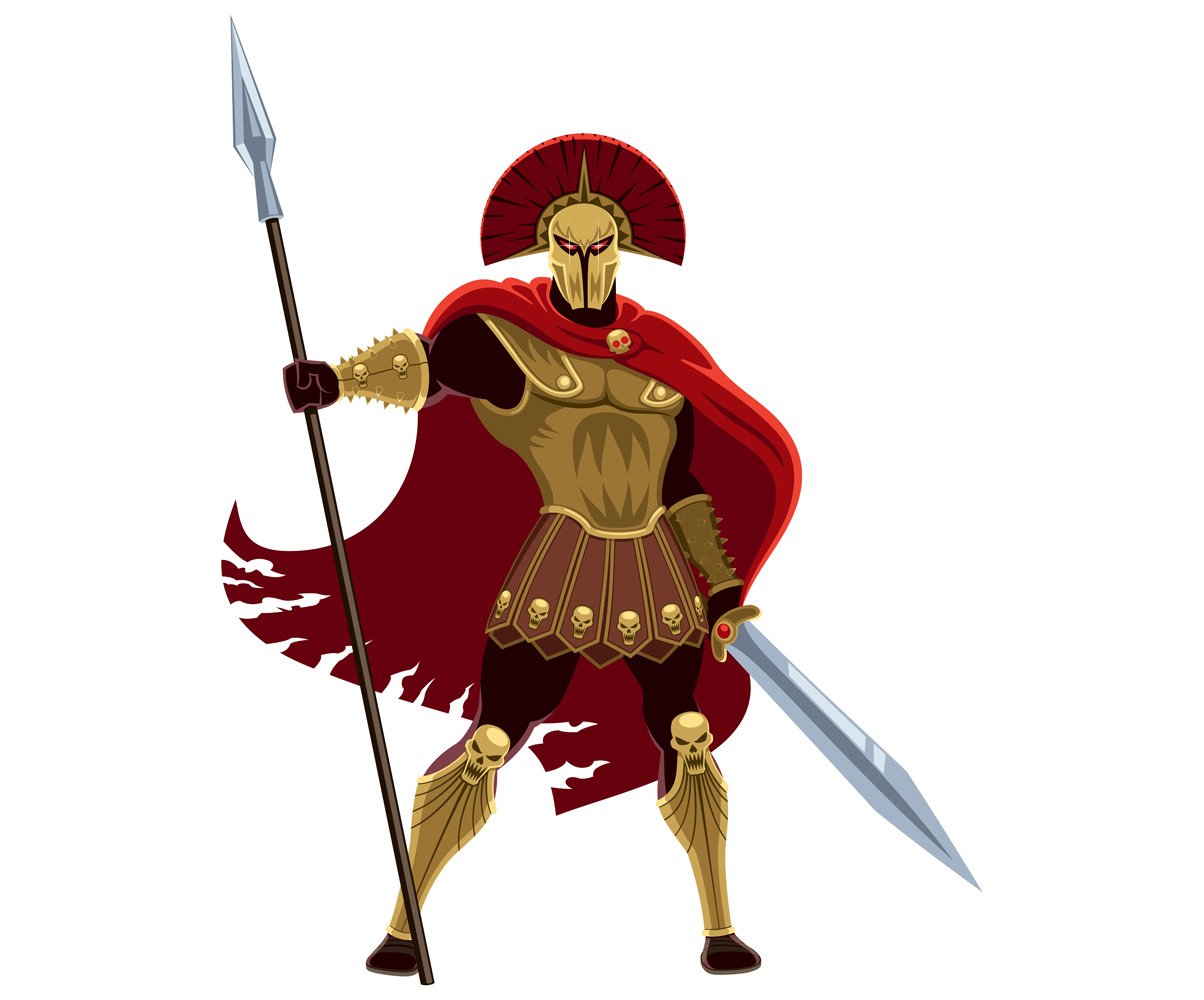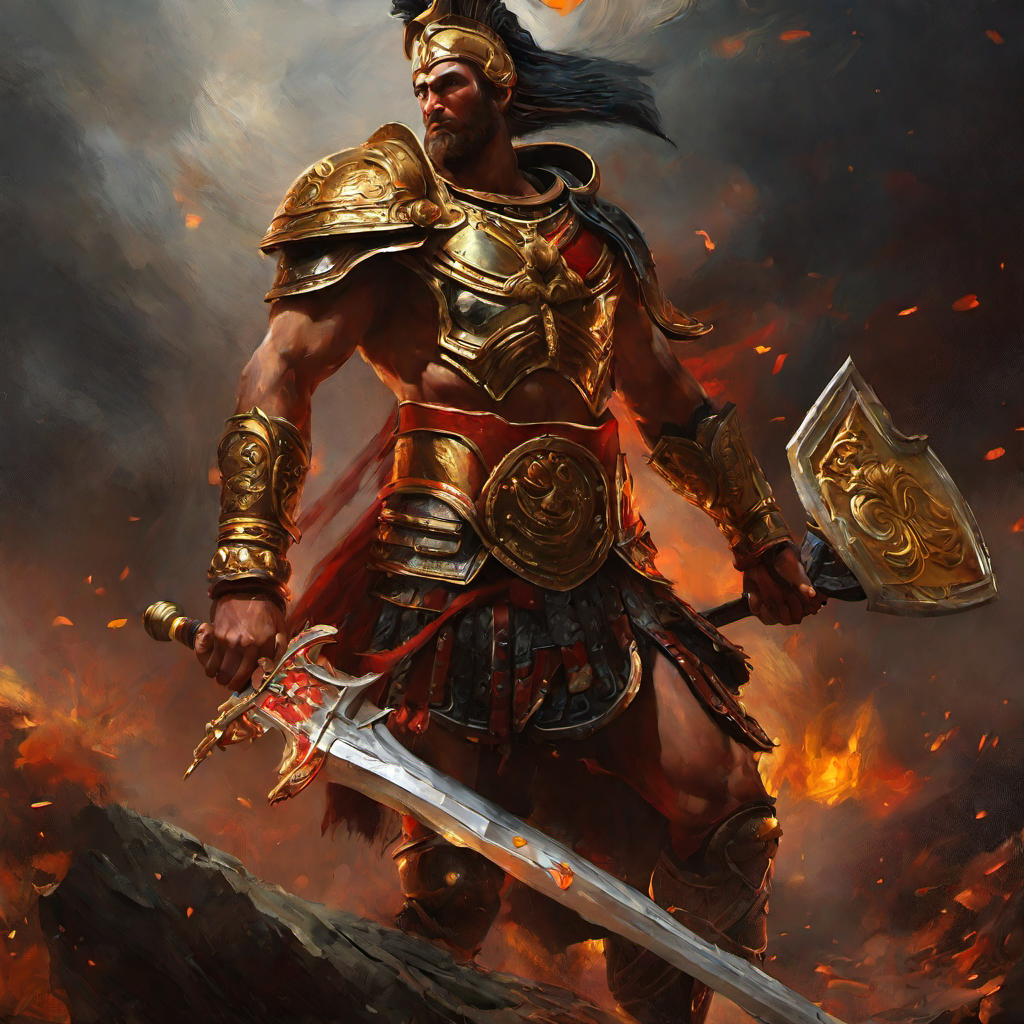Ares: The Wrathful Greek God Of War And Battle
Editor's Notes: "Ares: The Wrathful Greek God Of War And Battle" have published on [To be updated]. In today's article, we will take a closer look at Ares, the Greek god of war, and explore how he evolved into a symbol of violence and bloodshed. We will examine his role in Greek mythology, his importance in ancient Greek culture, and his enduring legacy in modern-day art and literature.
Our team has spent countless hours researching and analyzing various sources to provide you with a comprehensive understanding of Ares. This guide will help you delve into the fascinating world of Greek mythology and gain a deeper appreciation for the complexities of this enigmatic god.
| Key Differences | Ares | Athena |
|---|---|---|
| Symbol | War, violence, bloodshed | War, strategy, wisdom |
| Appearance | Tall, muscular, armed with a spear and shield | Beautiful, intelligent, often depicted with an owl or a spear |
| Role in mythology | God of war, often associated with brutality and destruction | Goddess of war, but also of wisdom, crafts, and strategic warfare |
| Legacy | Enduring symbol of violence and bloodshed, referenced in art and literature | Symbol of wisdom and strategic thinking, often revered as a patron of warriors |
Transition to main article topics...
FAQs
This section addresses frequently asked questions about Ares, the infamous Greek god of war and battle. Ares, known for his fierce demeanor and relentless pursuit of victory, holds a significant place in Greek mythology.
Question 1: What was Ares' role in Greek mythology?
Ares personified the raw and unyielding force of war. He was not a strategist or tactician but rather a chaotic and bloodthirsty deity who relished the carnage of battlefields. His presence often signaled destruction, bloodshed, and the horrors of war.

Ares Mars Greek God Of War Greek Gods And Goddesses Titans - PELAJARAN - Source www.pelajaran.guru
Question 2: How did Ares' personality differ from Athena's?
Ares represented the primal and destructive aspects of warfare, while Athena, the goddess of war and wisdom, embodied the strategic and just sides of conflict. Athena favored calculated tactics and honorable combat, while Ares indulged in brute force and indiscriminate violence.
Question 3: Was Ares married?
Yes, Ares was married to Aphrodite, the goddess of beauty and love. Their union was an uneasy one, often marked by infidelity and strife. Ares' relentless pursuit of war clashed with Aphrodite's desire for peace and tranquility.
Question 4: What was Ares' relationship with other gods?
Ares' volatile nature and bloodlust led to frequent conflicts with other gods. He clashed with Zeus, the king of the gods, and had a tumultuous rivalry with Poseidon, the god of the sea. However, he also had close ties with Hephaestus, the blacksmith god, who forged his formidable weapons.
Question 5: How was Ares depicted in Greek art and literature?
Ares was often represented as a fierce warrior clad in armor, brandishing a spear or sword. In Greek literature, such as Homer's Iliad, he was portrayed as a formidable and relentless force, capable of inspiring terror and awe on the battlefield.
Question 6: What is Ares' relevance today?
Ares remains a potent symbol of the destructive power of war and the primal instincts that can drive humanity to conflict. His legacy serves as a reminder of the devastating consequences of unchecked violence and the importance of striving for peaceful resolutions.
Summary of key takeaways or final thought:
Ares, the Greek god of war, represents the raw and chaotic aspects of conflict. His character highlights the dangers of unbridled violence and the need for strategic thinking in the pursuit of victory. His story continues to resonate with us today, reminding us of the destructive power of war and the importance of striving for peaceful solutions.
Transition to the next article section:
Tips from Ares: The Wrathful Greek God Of War And Battle
Ares, the Greek god of war and battle, represents raw strength, passion, and the indomitable spirit of a warrior. While often associated with aggression and destruction, Ares also holds valuable lessons for those seeking guidance in the face of adversity and conflict.
Tip 1: Embrace Courage and Tenacity
Ares embodies unwavering courage and determination. In the face of challenges, summon his fierce spirit to confront obstacles head-on and persevere despite setbacks.
Tip 2: Cultivate Strategy and Intellect
While Ares is known for his brute force, he also values strategy and intellect. Study your opponents, analyze their strengths and weaknesses, and develop cunning tactics to outmaneuver them.
Tip 3: Master the Art of Adaptation
Ares adapts swiftly to changing circumstances. In the chaos of battle, learn to adjust your plans, stay agile, and seize opportunities amidst uncertainty.
Tip 4: Embrace Conflict with Honor
Ares respects the rules of engagement. Fight fairly, with integrity, and avoid resorting to underhanded tactics. Honor your opponents, even in defeat.
Tip 5: Seek Glory through Strength
Ares is driven by the pursuit of glory. Strive for excellence in your endeavors, and let your actions speak to your unwavering strength and determination.
In the spirit of Ares, remember that true strength lies not only in physical prowess but also in courage, strategy, adaptability, and honor. Embrace these principles to navigate challenges with valor and achieve victory in all its forms.
Ares: The Wrathful Greek God Of War And Battle
Ares, the Greek God of War and Battle, embodies the tumultuous and often destructive aspects of warfare. His character and mythology present intricate facets that illuminate the complexities of ancient Greek beliefs and practices related to conflicts and military prowess.
- Epitome of ferocity: Ares, the physical embodiment of battle, represented the raw and untamed nature of war.
- Instigator of carnage: His presence on the battlefield often led to relentless bloodshed and destruction, earning him the reputation of a bloodthirsty deity.
- Lover of battle: Ares reveled in the chaos and violence of war, finding pleasure in combat and the thrill of victory.
- Symbol of aggression: The god personified the aggressive and often irrational impulses that drive humans to engage in conflicts.
- Lacking strategic wisdom: Despite his prowess in battle, Ares was not known for his strategic or tactical abilities, often relying on brute force rather than cunning.
- Rivalry with Athena: Ares' constant conflict with Athena, the goddess of strategic warfare, highlighted the distinction between reckless aggression and thoughtful strategy in warfare.
These key aspects of Ares provide a comprehensive understanding of his significance in Greek mythology, shedding light on the multifaceted nature of war, the role of deities in shaping human conflicts, and the complex interplay between aggression, strategy, and the consequences of warfare.

Ares, Greek god of war or, the spirit of battle. by Marina Klimi on - Source dribbble.com
Ares: The Wrathful Greek God Of War And Battle
Ares, the Greek god of war and battle, was one of the most powerful and feared gods in the Greek pantheon. He was known for his ruthlessness, violence, and bloodlust. Ares was often depicted as a tall, muscular man with a bronze helmet and armor. He carried a spear and a sword, and his chariot was drawn by four fire-breathing horses.

Ares: The God of War by nahdawg on DeviantArt - Source nahdawg.deviantart.com
Ares was the son of Zeus, the king of the gods, and Hera, the queen of the gods. He was born in Thrace, a region in northeastern Greece. Ares was a brutal and savage warrior, and he loved nothing more than to fight. He was often involved in battles and conflicts, and he was always eager to shed blood.
Ares was not a popular god among the Greeks. He was feared and respected, but he was not loved. The Greeks believed that Ares was a dangerous and destructive force, and they often prayed to him to protect them from his wrath.
Conclusion
Ares was a complex and contradictory god. He was both a destroyer and a protector. He was feared and respected, but he was not loved. Ares represents the dark side of human nature, the capacity for violence and destruction. He is a reminder that even in the most civilized societies, there is always the potential for war and bloodshed.
The story of Ares is a cautionary tale about the dangers of war. It is a reminder that war is never the answer, and that it always leads to death and destruction.



